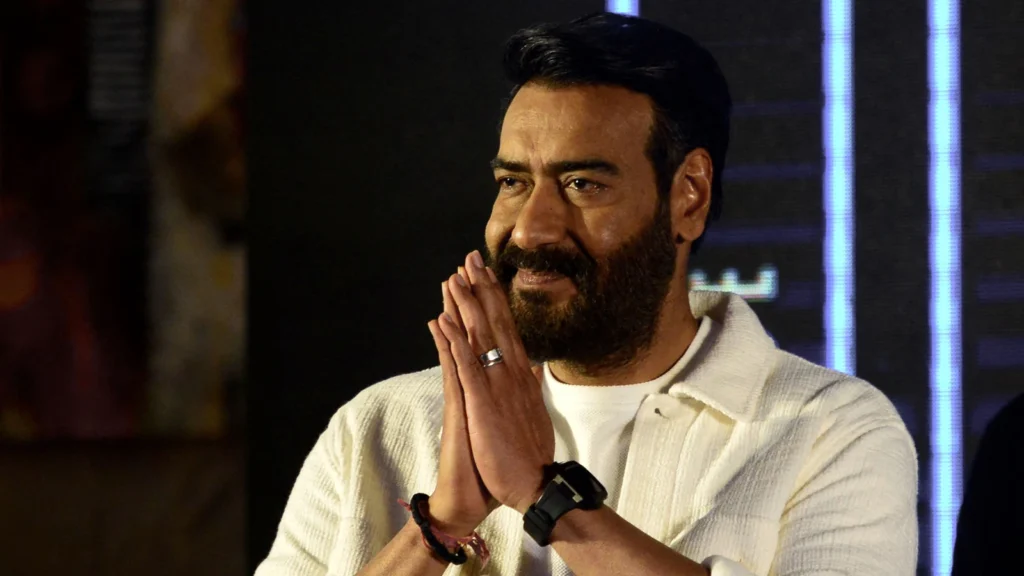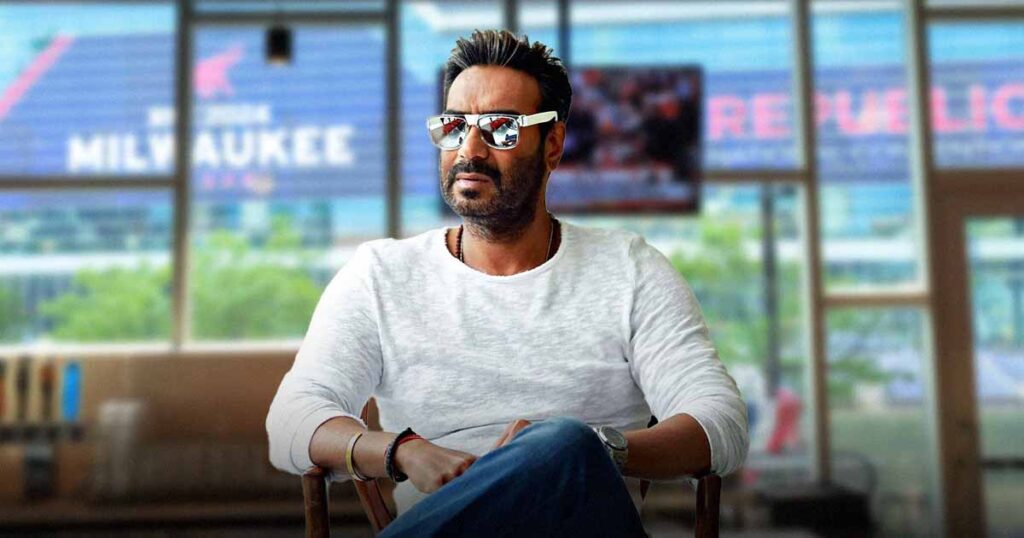
Ajay Devgn, one of Bollywood’s most enduring actors, recently set the industry abuzz with his provocative comment that Bollywood today is filled with “boys” rather than “men.” Known for his no-nonsense demeanor and formidable screen presence, Devgn seemed to yearn for an era when actors exuded an unmistakable aura of dominance and power. His remark has sparked an intense debate, not only about the current crop of Bollywood actors but also about the industry’s evolving dynamics. It raises important questions: Has Bollywood lost its larger-than-life figures? Or is it simply adapting to changing times and audience expectations?
The Context of Devgn’s Statement
Ajay Devgn’s comment reflects his perspective as an actor who has witnessed multiple eras of Bollywood firsthand. He rose to prominence in the 1990s, an era dominated by towering personalities like Amitabh Bachchan, Sunny Deol, and Dharmendra—actors whose on-screen personas carried a sense of raw masculinity and power. These “men” became icons, embodying the strength and resilience that audiences idolized. In contrast, Devgn suggests that today’s stars, while talented, often lack the gravitas that made their predecessors unforgettable.
This observation comes at a time when Bollywood’s focus has shifted significantly. The emphasis has moved from creating grand heroes to crafting relatable, human characters. With younger actors like Ayushmann Khurrana, Vicky Kaushal, and Siddhant Chaturvedi gaining prominence, there’s been a noticeable shift toward storytelling that prioritizes emotional depth over sheer physicality or dominance.
The Changing Definition of Stardom
One of the key points in this debate is the evolving definition of what makes a “star.” In the past, Bollywood heroes were larger-than-life figures, often depicted as invincible saviors or indomitable fighters. This was not only a reflection of the times but also an audience preference. People sought escapism and aspired to be like their on-screen idols. Actors like Amitabh Bachchan epitomized this, portraying characters who overcame insurmountable odds with grit and determination.
However, today’s audience has different expectations. They value authenticity and relatability, favoring characters who feel like “one of us.” Films like Badhaai Ho and Masaan have gained traction because they showcase vulnerability and real-life struggles. As a result, the actors leading these narratives naturally reflect this shift—they are more about emotional resonance than projecting invincibility.
Ajay Devgn’s remark, then, can be interpreted as a longing for the cinematic ethos of his formative years. For him, the era of “men” was synonymous with heroes who stood tall and commanded respect through their sheer presence. While such figures still exist—actors like Ranveer Singh and Hrithik Roshan often embody larger-than-life personas—Devgn’s comment suggests that they are the exception rather than the rule.
Is Star Power Truly Diminished?
Some agree with Devgn’s view, believing that Bollywood has indeed lost its quintessential “star power.” They argue that the industry has become too numbers-driven, with a focus on box office figures, social media followers, and marketing strategies. In this environment, actors are often seen as brands rather than artists, and their ability to command respect through their craft has diminished.
Others, however, believe this change is not a loss but a natural evolution. They point out that today’s stars have adapted to a world that is more inclusive and diverse. The days when heroes were expected to play the same archetype over and over are long gone. Now, actors are celebrated for taking risks and breaking stereotypes. For instance, Ranbir Kapoor’s complex portrayal in Rockstar and Ayushmann Khurrana’s choice of unconventional roles show that today’s “boys” are just as capable of leaving a lasting impact as the “men” of yesteryear.
Cultural Shifts and Masculinity in Cinema
Devgn’s remark also touches on a broader cultural conversation about masculinity in cinema. The hyper-masculine hero of the past, who relied on brute strength and dominance, is no longer the gold standard. As gender roles evolve, audiences are increasingly rejecting rigid stereotypes. This is evident in the success of films like Gully Boy, which celebrated vulnerability and self-expression, or Article 15, which highlighted moral courage over physical strength.
Ajay Devgn’s view, then, could be seen as reflective of a generational divide. For him, masculinity and stardom were intrinsically linked to power and dominance. Today, however, masculinity is being redefined, and with it, the image of the Bollywood hero.
Bollywood: Artistry or Industry?
Another important aspect of this debate is the tension between art and commerce in Bollywood. Devgn’s lament about the lack of passion and artistry points to a growing concern that Bollywood has become too commercialized. With an increasing reliance on sequels, remakes, and formulaic plots, many feel that creativity is taking a backseat.
At the same time, there’s no denying that Bollywood is undergoing an exciting transformation. The rise of OTT platforms has democratized the industry, allowing fresh voices to emerge. Filmmakers are experimenting with new genres, and actors are taking on roles that challenge traditional notions of stardom. While the industry may no longer produce the towering figures of Devgn’s era, it is arguably more dynamic and inclusive than ever before.
Conclusion: A Nostalgic Critique or a Call for Balance?
Ajay Devgn’s “boys vs. men” comment may stem from nostalgia, but it also invites a deeper conversation about Bollywood’s present and future. While his critique of the diminishing dominance of star power resonates with many, it’s also important to recognize the industry’s progress in other areas. Today’s Bollywood celebrates diversity, authenticity, and relatability—qualities that were often overlooked in the past.
Ultimately, the debate isn’t about choosing between the past and the present but about finding a balance. As Bollywood continues to evolve, it has the opportunity to merge the charisma of its larger-than-life heroes with the depth and relatability of modern storytelling. Only time will tell whether the industry rises to this challenge, creating a new generation of stars who embody the best of both worlds.






